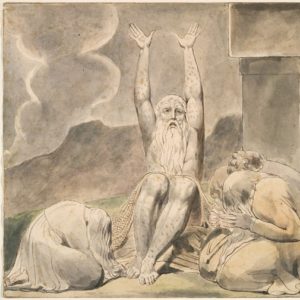
We usually browse the internet to try out new things. We play a song from another genre, a genre we’re not used to listening to, a new weird movie, or play with a new offer like the HeySpin bonus code. But people browse the internet to learn something new as well. For example, did you know that religious and spiritual meanings can be found in almost any form of entertainment that we can think of? From movies to music, and, of course, video games. That isn’t much of a surprise – video games are ideal for people to explore moral and spiritual choices as well as real-life experiences. Some video games have obvious religious implications like BioShock Infinite or the Final Fantasy franchise, while others keep the symbolism very subtle and vague. Most of these are not explicit and thus are sometimes overlooked unless you pay close attention.
Max Payne

The book of Job, from the Hebrew Bible and the Old Testament of the Christian Bible depicts Job, a wealthy man who was blessed with health and family and the story of how he lost it all but still remained righteous and faithful to God.
It is easy to see the similarities between his story and Max Payne’s, who also had to suffer through a great deal of loss and grief. He goes on to get his vengeance on all the people who had wronged him and destroy a drug dealer ring in his city.
Although his methods are very different from Job’s, he still trusted his morals and beliefs.
Super Mario Bros
The key concept behind Hinduism, the circular nature of our lives and the universe, is easily seen in Super Mario Bros. It is the notion that time is cyclical and not linear, and that everything keeps happening in the same way over and over again. The Super Mario universe plays with this symbol throughout the whole game, repeating all of its enemies and landscapes. You would think that constant repetition of one and the same can make a video game boring, but the effect of Super Mario is quite the opposite. It seems that this incessant repetition of objects and tasks gives the player a pleasant feeling of recognition, which is perhaps the reason why this game continues to be worldwide popular even now.
The Legend of Zelda

This high-fantasy action game follows Link on his missions of rescuing Princess Zelda and their beloved kingdom through a set of adventures, dungeons, and puzzles. The basis of this game has its roots in a Jewish proverb that states that ‘everything is foreseen, and permission is granted’. What this means in the world of The Legend of Zelda, is that the player has a series of tasks they have to solve, tasks which are precise and have prescribed solutions, but they also have the freedom to do whatever they want in the game. They can wander through the world, explore the dungeons, and try whatever they can think of in order to get the right solution.
Shadow of the Colossus
The notion of nothingness is considered a great mystery for an ordinary person. Contemplating and trying to understand what nothingness is and how it feels seems impossible, except for maybe Buddhist monks. The game Shadow of the Colossus offers you a chance to continuously meditate while riding through beautiful landscapes, with nothing else but you and your thoughts. There are about sixteen monsters for you to find and slay, but during the rest of the game, not much happens. This is what sets this game apart from all adventure-filled video games – it is very inactive and meditative.





